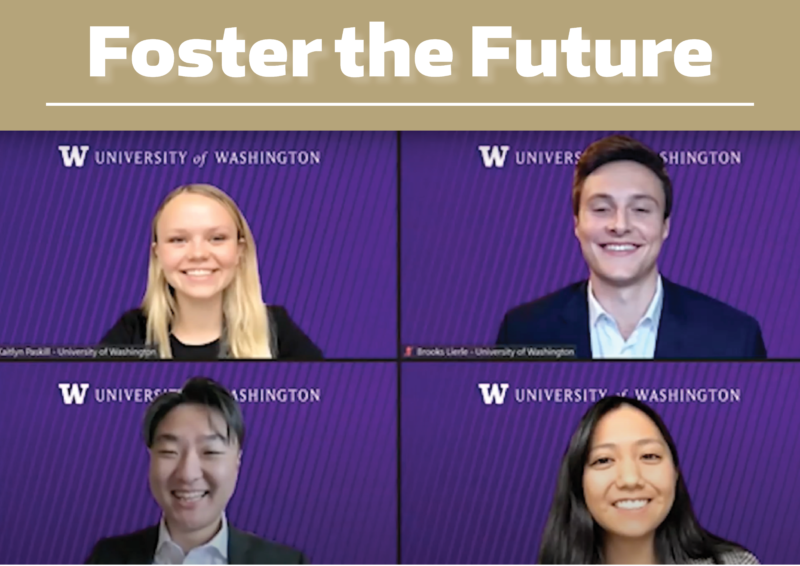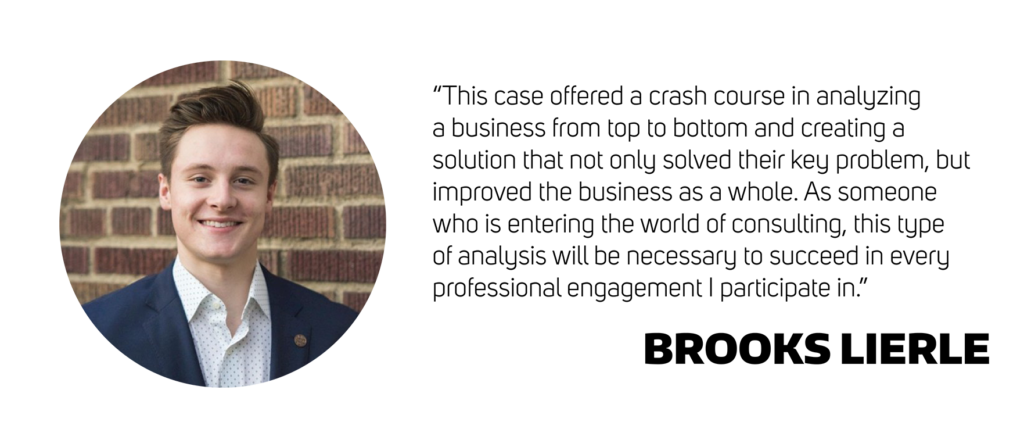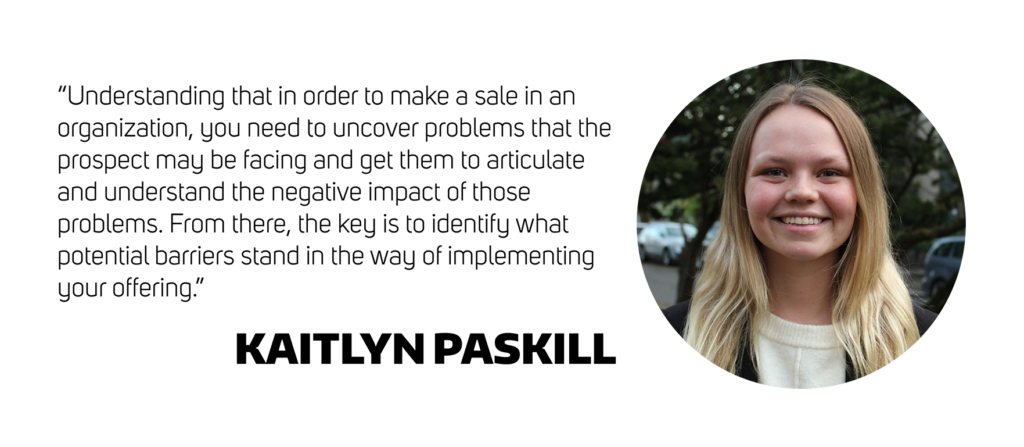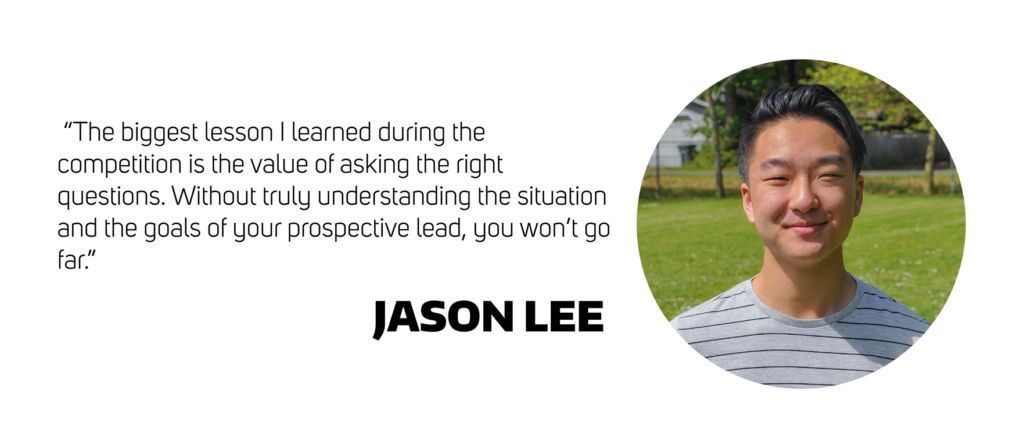UW Foster Sales Program Students Impress at National Team Selling Competition
 Before they met the judges, the team gathered via Zoom, dressed in their business attire, and decided to take one final minute to get their energy up before the big meeting. Many weeks of practice and work had been building up to this moment, where the students had twenty minutes to face the judges and conduct their first sales discovery call.
Before they met the judges, the team gathered via Zoom, dressed in their business attire, and decided to take one final minute to get their energy up before the big meeting. Many weeks of practice and work had been building up to this moment, where the students had twenty minutes to face the judges and conduct their first sales discovery call.
The UW Foster Sales Program students have been participating in the National Team Selling Competition (NTSC) since 2015. The competition, organized by Indiana University, 3M, and Altria, simulates a business sales opportunity where the students work as a team and gain hands-on experience in problem solving, creativity, and professionalism.
In May of 2021, UW Sales Program co-directors Barry Erickson and Karen Bailey and advisory board member Joe Vandehey set out to select a handful of skilled students with a variety of experiences to take on the challenge of competing against schools across the country. They invited Brooks Lierle (‘22), Kaitlyn Paskill (‘22), Ann Thompson (‘22), and Jason Lee (‘22) to represent the University of Washington.
Here, students reflect upon how the sales program curriculum has contributed to their success.
The team did a great job, received positive feedback from the judges, and celebrated their teammate Lierle, who received special recognition for making an exceptional impression based on his performance and knowledge.

We asked the students who participated in the competition this year about their experiences, takeaways, and lessons learned from participating in a selling competition.
What goes into a selling case competition?
Teams receive a case that describes a fictitious company they represent and a fictitious company they will be selling to. During the competition, students lead an initial discovery call with sales leaders who role-play as the customer, giving the students a chance to better understand the customer’s business needs and goals. From there, students work together to present a solution to the customer that addresses those business needs and goals discovered in the first meeting. Leading up to the competition, the task at hand is to carefully study the case to understand their business initiatives and identify the necessary questions needed to ask in the initial discovery call.
What was the ultimate value of doing a team selling competition like this?
“I took away not only a better sense of how to sell effectively, but I was able to learn organization and communication skills from my peers and coaches,” Lierle replied. He went on to recognize the quality of coaching and mentoring received during the case competition from Erickson, Vandahey, and Jack Rhodes, founder of the UW Sales Program: “Their wisdom helped change the way I go about understanding the key drivers of a business problem.”
Lierle was awarded MVP during the competition for his professional cadence, handling objections appropriately, and asking important follow-up questions. During the awards ceremony, Altria judge Jennifer Whaley remarked: “He had an innate ability to be an excellent listener, and by being an excellent listener, he asked great follow up questions. He was also able to simply take folks through the math and some of the more complex information that was necessary to be successful in the competition. He was also very engaging, personable, and very genuine—and I would tell you, that’s a very hard thing to do [through] the screen.”

Paskill, another team member, reported several advantages to competing in a program such as the NTSC. In addition to improving business acumen, working with a team, and understanding a business’s buying decisions, Paskill noted that the competition helped “identify your own strengths and weaknesses in a selling environment.”
What was the biggest learning lesson in this experience during the competition?
Often people visualize a sales meeting as simply being a one-on-one interaction with two people sitting across a table. Paskill points out that team selling is very different from a one-on-one conversation. “There are radically different dynamics at play, and it’s important that the team is on the same page in order to successfully uncover the customer’s needs.”

Thompson shared how team selling can prepare students for real-world scenarios of selling, especially in the B2B landscape: “There are many instances where you will have multiple teammates on a call with you, and to practice how that conversation might go through this competition teaches you a lot about the amount of collaboration, listening, and interpersonal communication that goes into a discovery call.”
Jason Lee recalls the importance of active listening to pose the right questions: “the biggest lesson I learned during the competition is the value of asking the right questions. Without truly understanding the situation and the goals of your prospective lead, you won’t go far.”

The University of Washington Professional Sales Program offers students the opportunity to participate in a variety of competitions and activities to further foster connections between students and business leaders in sales. Not only do these experiences benefit students in gaining skills, but they give sales leaders the chance to interact and meet with the incoming talent in the business world. 

